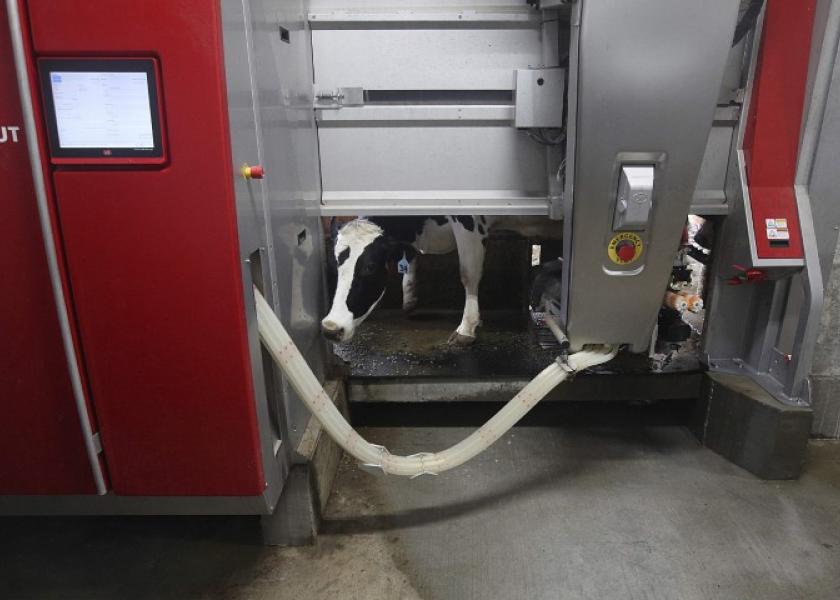Cows Need Certain Personalities to Handle Robots

We all have days when we wake up on the wrong side of the bed and don’t want to go to work. Turns out cows share this same characteristic. And according to a recent study, some cows aren’t cut out to handle different types of milking setups.
Researchers at the University of Guelph recently set out to determine the effects of dairy cow personality traits on their adaptation to an automated milking system (AMS) following calving. Sixty Holstein dairy cows were assessed for personality traits using three tests conducted at 24 days before calving and 24 days after their first introduction to an AMS, which occurred approximately three days after calving.
The test comprised of three parts: a novel arena test, novel object test, and a novel human test. Throughout the three tests, assessment revealed three factors interpreted as personality traits before calving. These traits were deemed explorer, active, and bold. The post-calving test revealed two factors and were interpreted as active and explorer.
Data was collected for seven consecutive days after the cow’s first introduction to the AMS and then collected again on day 21 through 27. Very few cows scored high for the explorer personality. Cows that scored high for activeness in the pre-calving test tended to have fewer fetching events and a higher coefficient of variation of milk yield in the first seven days after introduction to the AMS, while bolder cows tended to have higher milk yield during that time period.
In the post-calving test, more active cows tended to have more frequent milkings and voluntary visits per day, as well as a lower cumulative milk yield from day 21 to 27 after introduction to the AMS.
Overall, these results indicate that personality traits of dairy cows are associated with adaptation and performance in an AMS, and that personality traits are consistent across the transition period. Specifically, cows that scored high for boldness and activeness adapted better to the AMS immediately after calving, while cows that scored low for activeness and high for boldness performed better in terms of milk yield and milking activity in early lactation.
According to the researchers, this study demonstrates that personality traits affect milking activity and milk yield of dairy cows milked with an AMS and, therefore, may be useful for selection of cows who might best adapt to and use an AMS.







